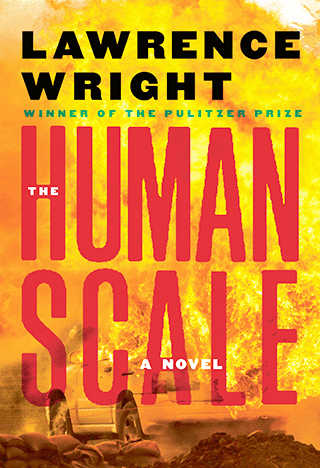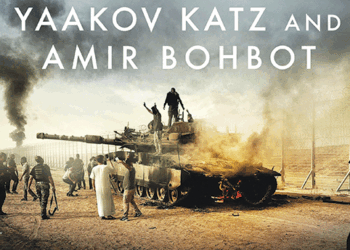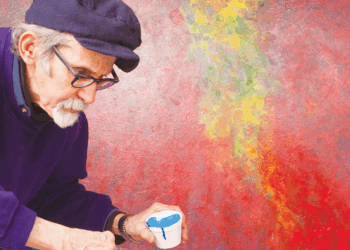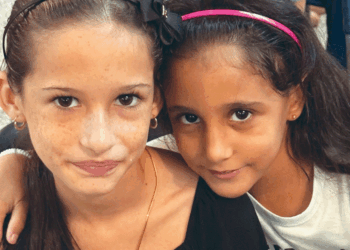Reviewed by NEAL GENDLER
Having served in the Middle East, FBI agent Tony Malik isn’t naive about the area’s tensions when he decides to attend a cousin’s wedding in Hebron.
He nearly had died after a suitcase bomb in Jordan exploded as it was being disarmed. He lost an eye. Traumatic brain injury left memory problems.
 In Lawrence Wright’s engrossing The Human Scale, Arabic-speaking Malik was born in America, son of a mother of Scotch and Irish ancestry and a father who immigrated from Hebron. Now 33, he wants to meet the half of his family he doesn’t know, including his father’s identical twin.
In Lawrence Wright’s engrossing The Human Scale, Arabic-speaking Malik was born in America, son of a mother of Scotch and Irish ancestry and a father who immigrated from Hebron. Now 33, he wants to meet the half of his family he doesn’t know, including his father’s identical twin.
He doesn’t expect to become a suspected terrorist, to be kidnapped by real terrorists and to find himself helping an Israeli police inspector unexpectedly seeking a killer, terrorists and a Jewish and Arab criminal underground.
His troubles begin as an FBI academy classmate, now chief of counterterrorism, says Malik could retire medically. Malik wants to return to work.
But first is the wedding. When Malik mentions it, the classmate asks him for a favor, “a busman’s holiday type of thing,” but unofficially.
“Some cop in Hebron has reached out to our [legal attaché] in Jerusalem,” he says. “Wants to talk but won’t say about what … just drop in and take his temperature.”
Malik agrees and, at the Cave of the Patriarchs, very briefly meets the “cop,” Hebron station chief Jacob Weingarten. Security cameras record them and Malik’s departure in a white Toyota.
Soon, Weingarten has been strangled and beheaded.
Weingarten’s next in command, Yossi Ben-Gal, meets Malik on bad terms after the first of Malik’s Hebron misadventures.
The day after meeting Weingarten, Malik notices a dusty truck following his car. He suspects terrorists, not Israeli policemen. Several turns don’t shake it, nor does fast, evasive driving. The truck crashes into him and he’s under arrest and unidentifiable because his passport, wallet and phone have been stolen.
Questioned, Malik can’t recall his conversation with Weingarten and is accused of killing him. He frees himself by getting Ben-Gal to call the U.S. embassy to identify him.
Bruised and shaken, he attends a large, festive dinner for the extended family of the bride — beautiful Dina — and her fiancé, Jamal, an engineer working in a butcher shop.
Malik soon slides into helping Ben-Gal investigate the murder, of which an innocent Arab has been accused, and helping Dina, who becomes unfairly disgraced. More trouble finds him.
There’s also a charismatic rabbi wanting to expand his holdings onto Dina’s family land to build a third Temple, peace-seeking Jamal’s terrorist cousin Zayyat, widower Ben-Gal’s Paris-educated daughter and supposedly trustworthy people who are not.
Giving away more would reduce enjoyment of this superbly artful, very engaging novel with its unexpected twists and turns.
The Human Scale begins in 2022 with Malik’s slow recovery and concludes with Ben-Gal and Malik’s response to tragedy. It’s far beyond a murder mystery, gaining power as it deftly, sympathetically exposes and explains the hatred, heartbreak and futility of two peoples violently competing for the same land.
New Yorker staff writer Wright, winner of a Pulitzer Prize for The Looming Tower, provides a brief history of Israel, an overview of its politics and a relatively balanced, understanding portrayal of Israeli and Arab concerns.
The Human Scale is insightful, current and knowledgeable, including Israel’s political divide; Itamar Ben-Gvir; Jews shuckling (swaying back and forth) as they pray; Oct. 7, 2023; and even the different colors of Israeli and Palestinian Authority license plates.
His description of Israeli treatment of Palestinian Arabs is quite negative. It’s impossible not to feel some empathy with the Arabs’ feelings of victimization and entrapment — even if it’s their own or their leaders’ fault since 1937.
Wright, who has lived and worked in the Middle East much of his career, says The Human Scale “was written with a mixture of compassion and anger.”
Other historic changes once thought impossible have occurred, he says, but here, “whenever a real opportunity for a breakthrough arises, it is incinerated by the killers who cling to the fantasy that their enemies can be ethnically cleansed or exterminated.”
***
Neal Gendler is a Minneapolis writer and editor.
(American Jewish World, May 2025)



















